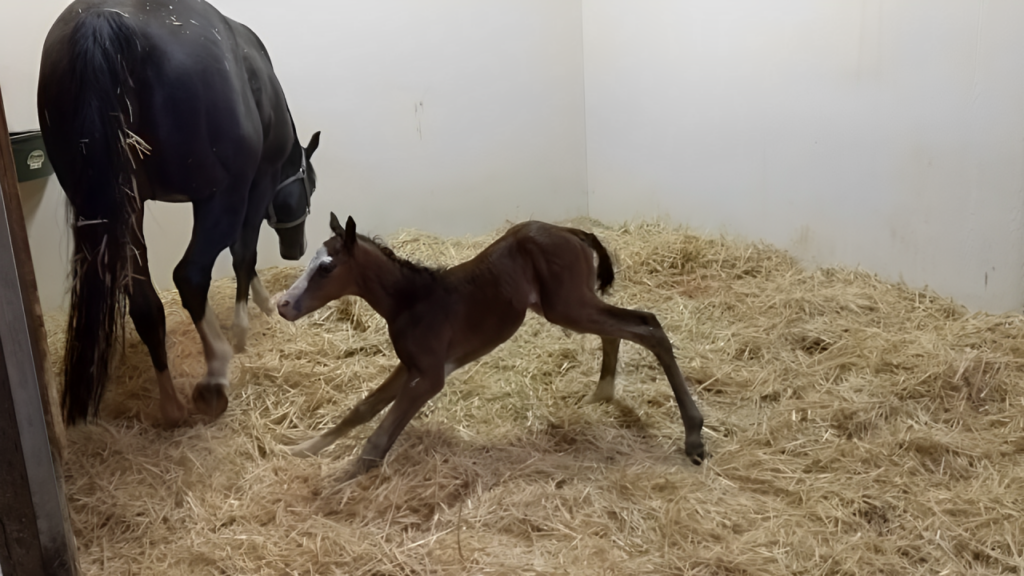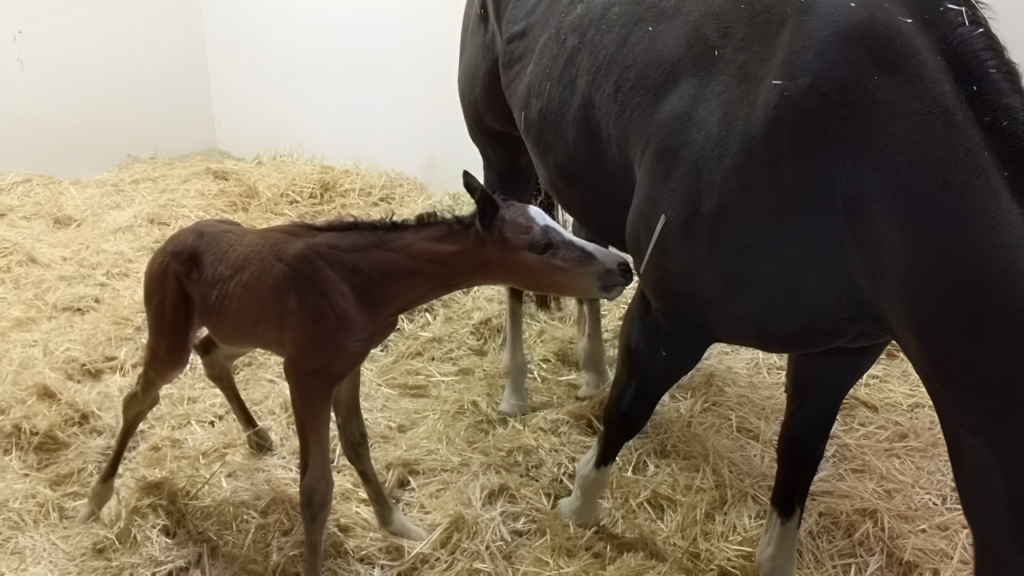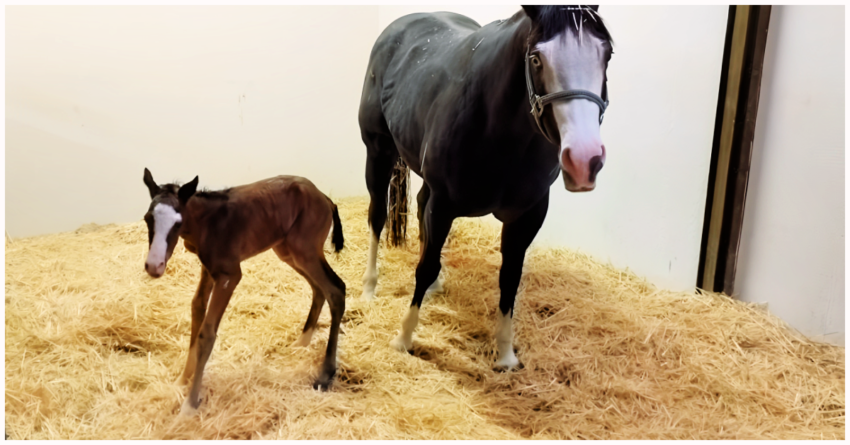In a heartwarming scene captured on video, a newborn foal is seen trying to stand alongside its mother, an American Quarter horse. This pivotal moment occurs just hours after birth, showcasing the remarkable resilience and instinctual capabilities of horses. As the foal struggles to stabilize on its shaky legs, it begins to nuzzle its mother—a key part of their bonding process. This interaction is crucial not only for the foal’s immediate comfort but also for its long-term mental and physical health, reinforcing the deep connections that form within these first critical hours.

The relationship between a mare and her foal typically begins with the mare sniffing or licking her young, which is a sign of acceptance and maternal interest. If the mare is responsive to her foal, she will allow it to nurse, marking the start of the foal’s developmental journey. This nursing is the first step in a lifelong process where the foal will grow and mature under the watchful eye of its mother, learning how to navigate the world around it. The initial interactions in these early days are pivotal for the foal’s growth and development, setting the foundation for its future as an adult horse.

However, not all interactions between mare and foal are affectionate or nurturing. In some cases, a mare may reject her foal, refusing to allow it to nurse, which can be a distressing scenario. This rejection occurs in approximately 5% of all equine births and can be attributed to various factors such as the mare’s exhaustion from a difficult delivery, discomfort with being touched, or even fear of the new foal. Such rejections can have detrimental effects on the foal’s health if not addressed promptly, as they are deprived of their mother’s colostrum—vital for immunity in the early days of life.

For foals rejected by their mothers, human intervention becomes essential. Caretakers may step in to milk the mare and bottle-feed the foal to ensure it receives the necessary nutrients and antibodies. Studies suggest that mares who have rejected two or more foals are likely to continue this behavior, indicating a potential genetic predisposition. Such findings have led to recommendations against breeding mares with a history of foal rejection, as it is likely to recur, affecting the well-being of future foals. This complex dynamic highlights the challenges and responsibilities involved in breeding and raising horses, emphasizing the need for careful observation and intervention when necessary.
